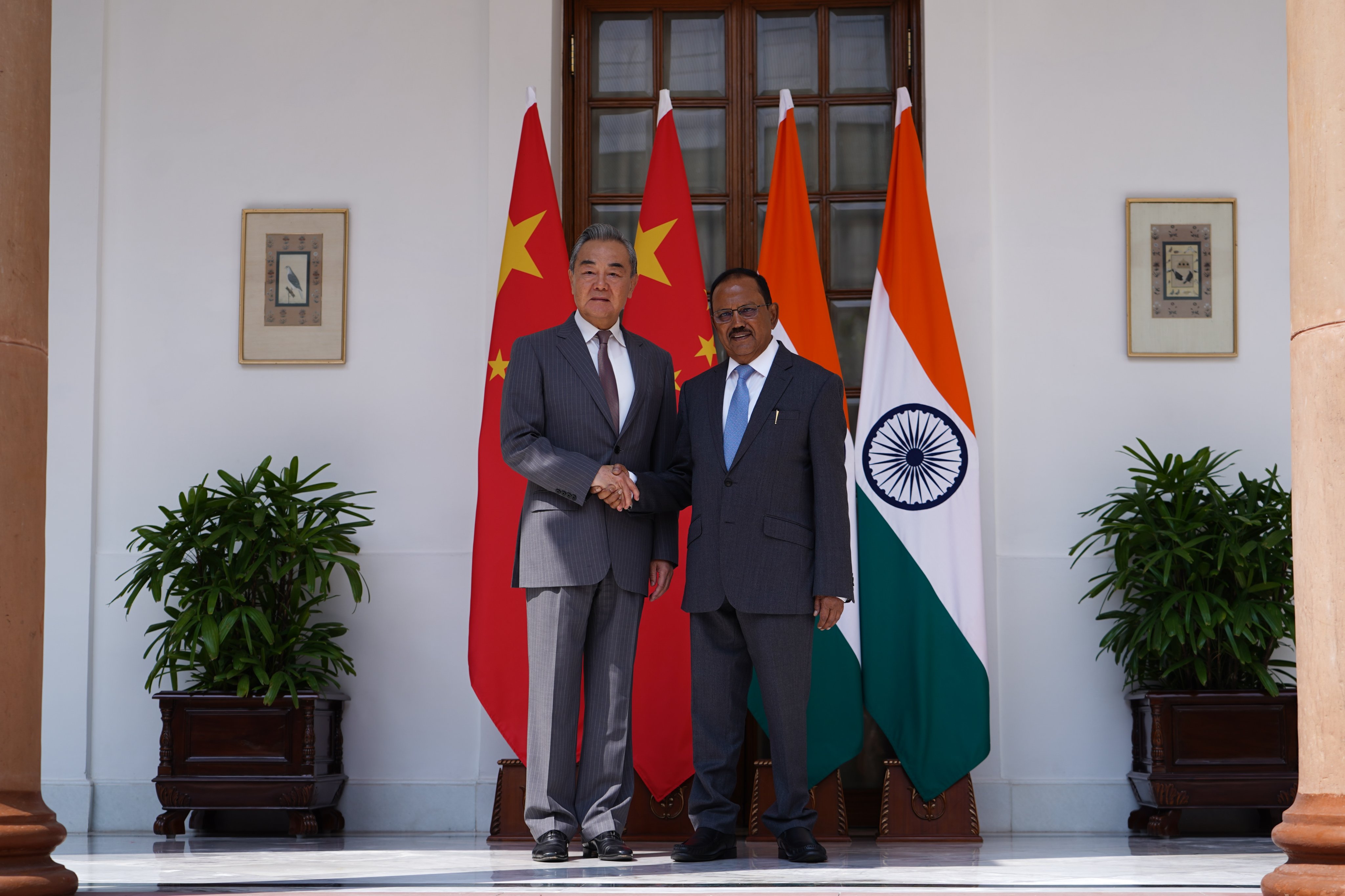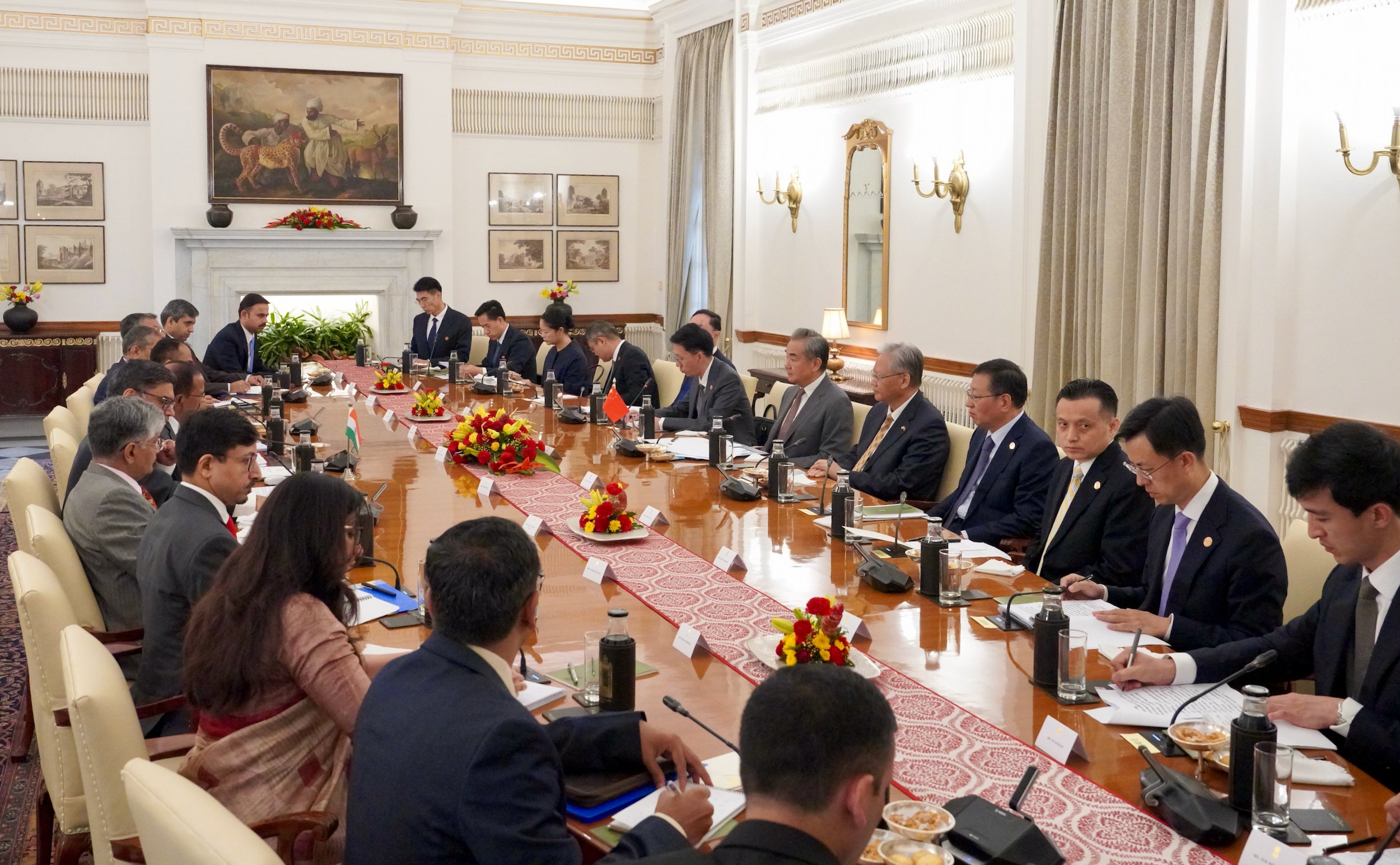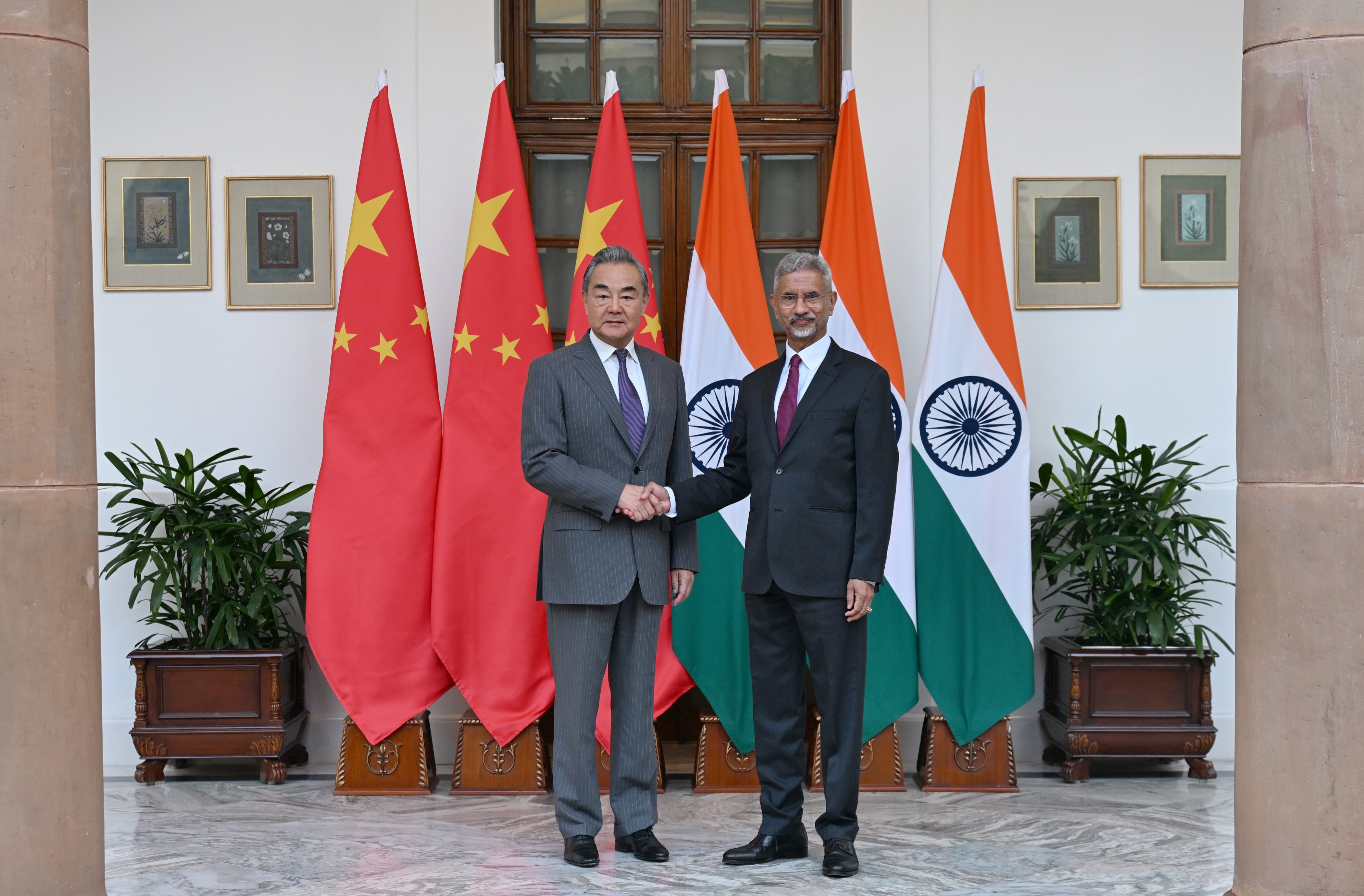
In a major diplomatic development aimed at stabilising bilateral ties and progressing on the long-pending boundary issue, National Security Advisor Ajit Doval hosted Chinese Foreign Minister Wang Yi for the 24th round of the Special Representatives’ dialogue on the India-China Boundary Question.
The talks, held on August 19, followed Wang Yi’s two-day official visit to India, during which he also met Prime Minister Narendra Modi and External Affairs Minister S Jaishankar.

The dialogue marks a renewed phase of engagement between the two Asian powers, building on the leader-level consensus reached at the Kazan summit in October 2024.
Both sides acknowledged that peace and tranquillity have largely prevailed along the Line of Actual Control (LAC) since the 23rd round of talks and emphasised the importance of sustaining this momentum to foster broader bilateral cooperation.
Five-Point Framework for Peace & Coordination
During the discussions, Doval and Wang Yi agreed on a five-point framework to deepen coordination and manage the complex boundary issue:
1. Political Lens: Both sides reaffirmed the importance of approaching the boundary question politically, aiming for a fair and mutually acceptable settlement in line with the 2005 Agreement on Political Parameters and Guiding Principles.
2. Expert Group on Early Harvest: An Expert Group will be established under the Working Mechanism for Consultation and Coordination (WMCC) to explore ‘Early Harvest’ opportunities in boundary delimitation, targeting areas where consensus may be more easily achievable.
3. Working Group for Border Management: A dedicated Working Group under the WMCC will enhance border management protocols and ensure sustained peace along the frontier.
4. Expansion of General Level Mechanism (GLM): Both sides agreed to extend the GLM beyond the Western Sector to include the Eastern and Middle Sectors, with an early meeting planned to review progress and operationalise new measures in the Western Sector.
5. De-escalation Mechanisms: India and China committed to using existing diplomatic and military-level mechanisms to initiate discussions on de-escalation, beginning with the formulation of guiding principles and operational modalities.
Officials described the discussions as candid and constructive, showing that both sides intend to move beyond past setbacks, including the Galwan Valley clashes of 2020, and rebuild trust through structured dialogue.
India and China will hold the next round of Special Representatives’ talks in China in 2026 to continue efforts to maintain peace and promote stability along the border.
Also Read: BJP Targets Congress Over Indus Water Treaty; Accuses Nehru Of Unilateral Decision
To read more such news, download Bharat Express news apps
























